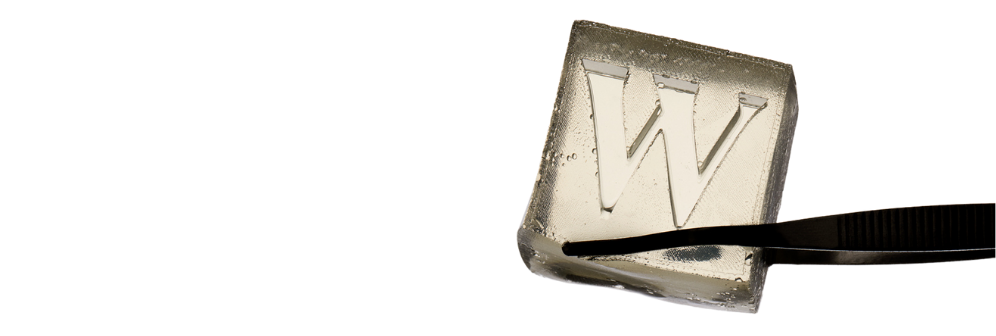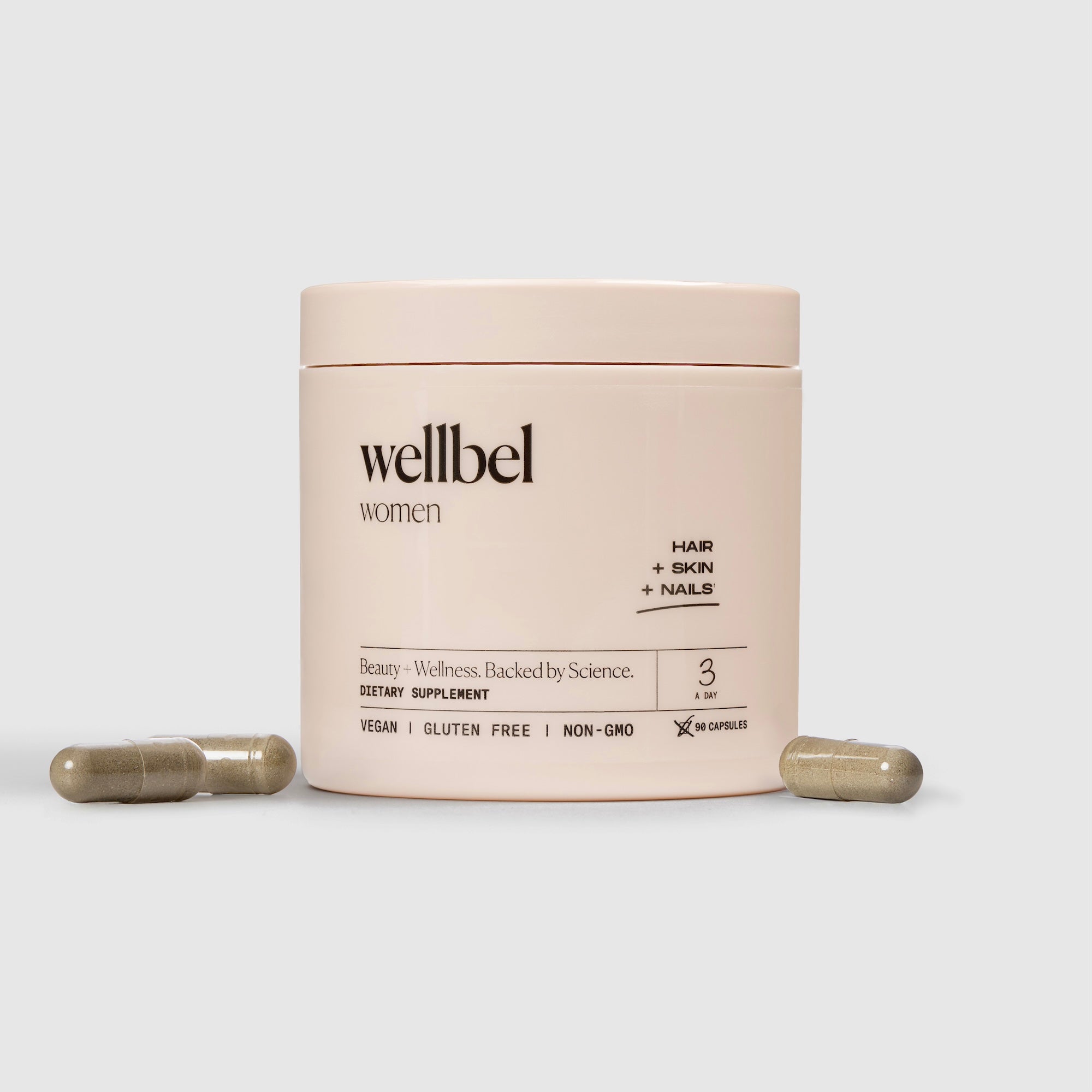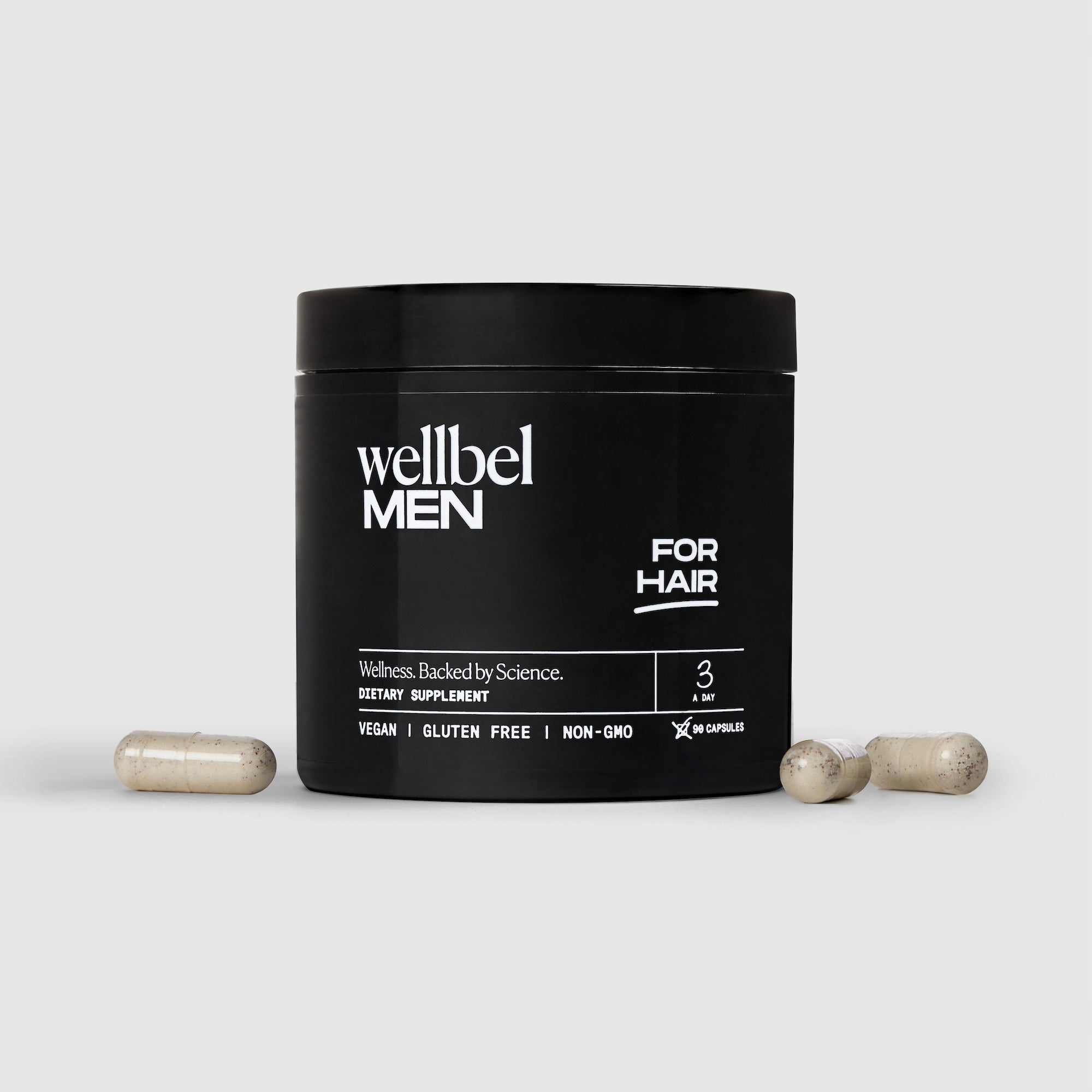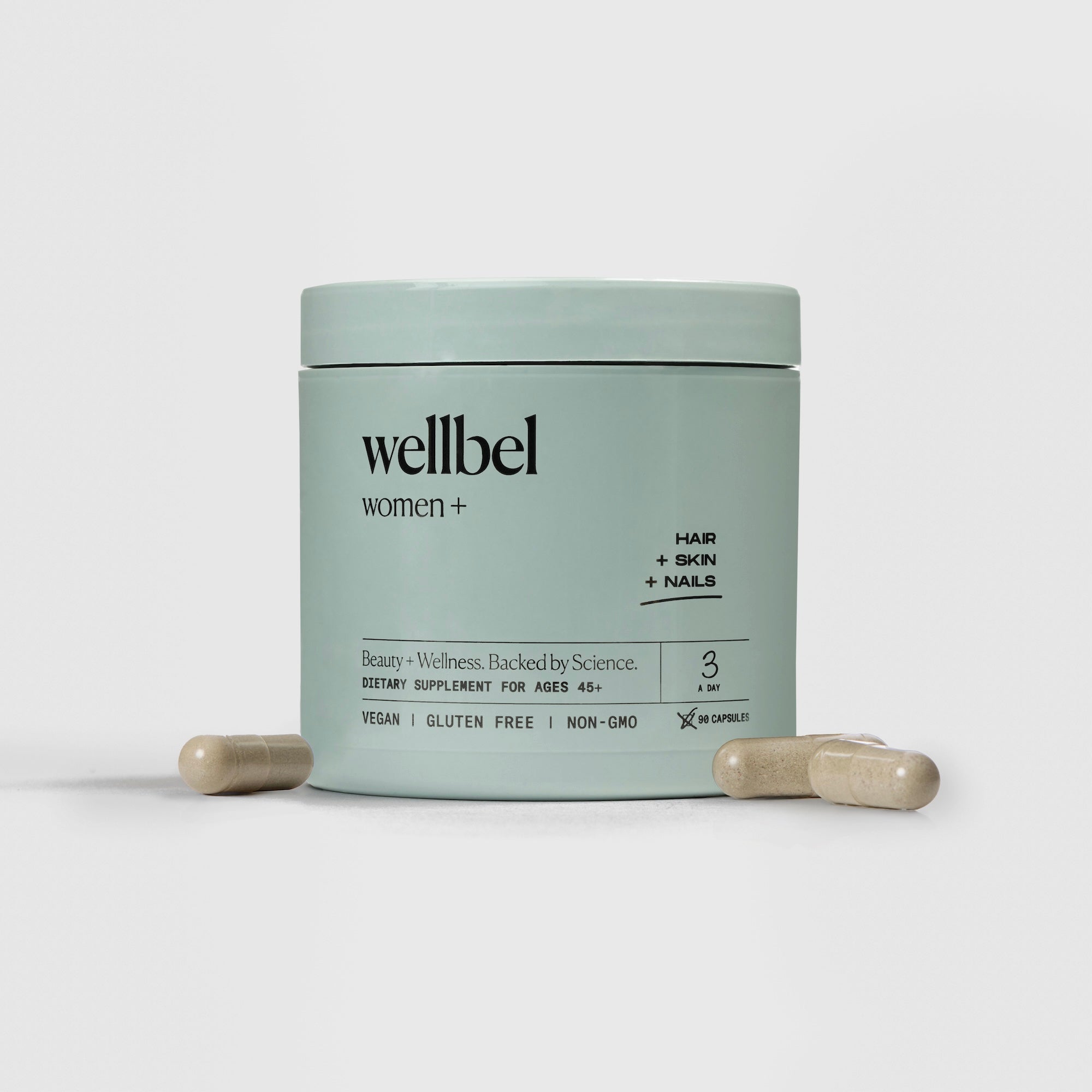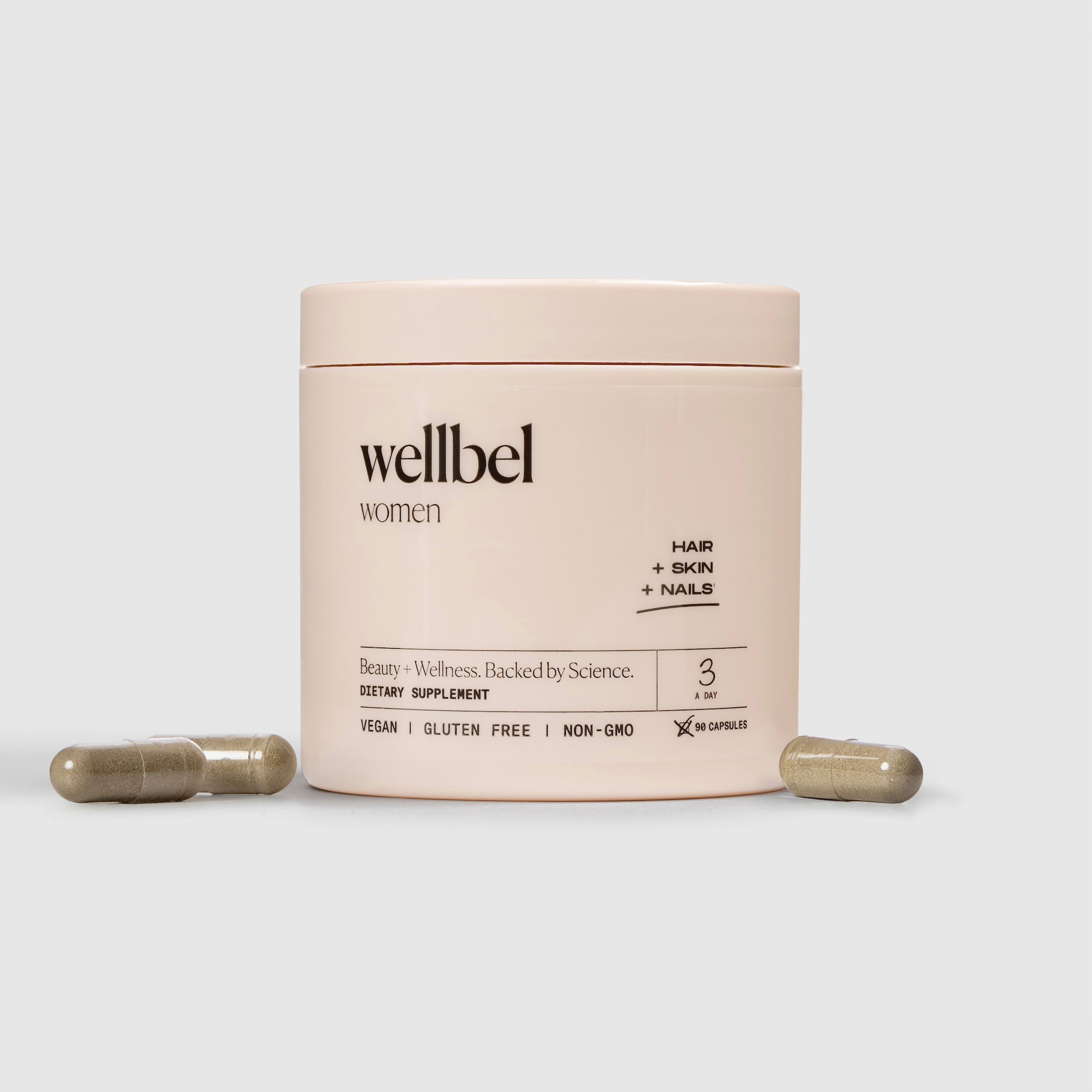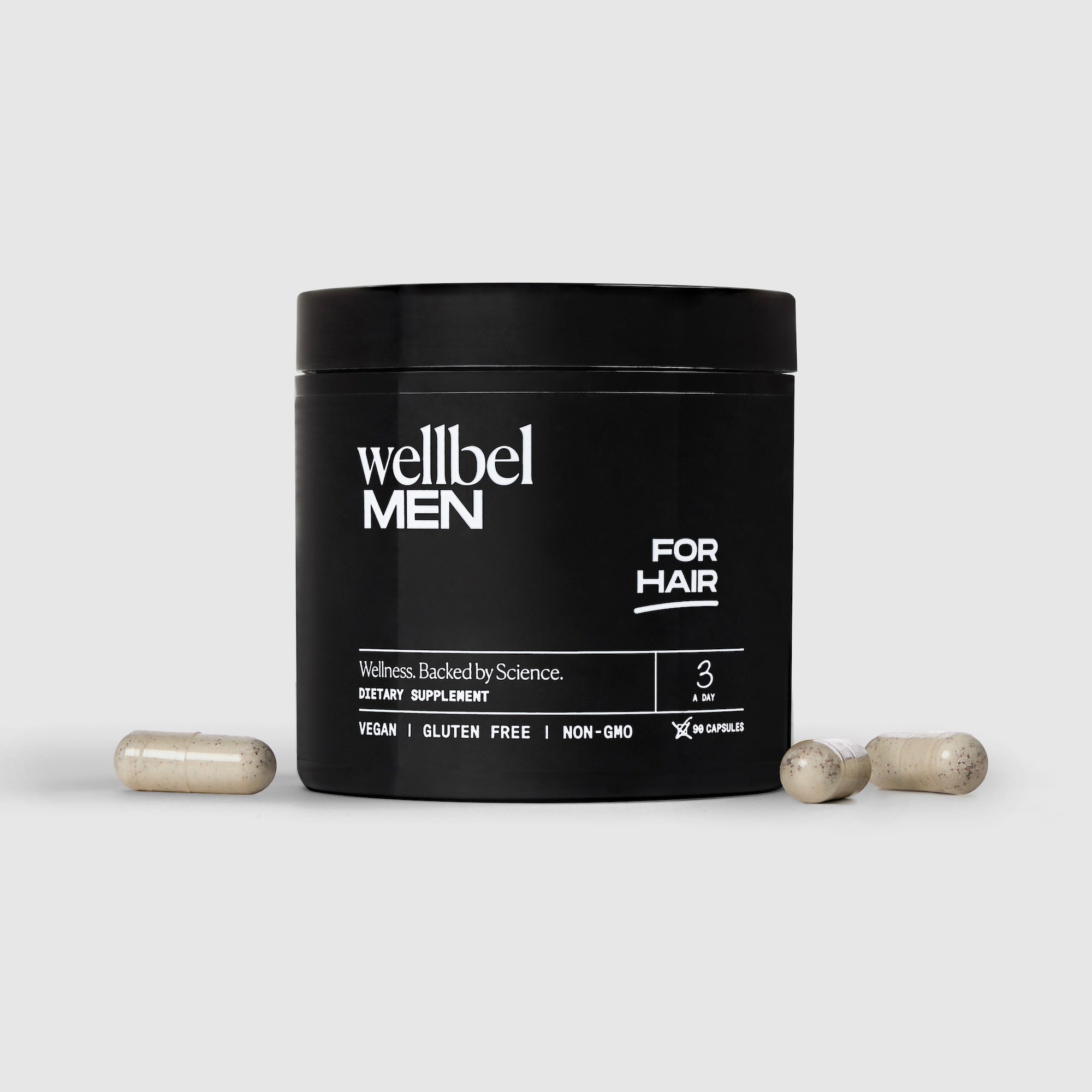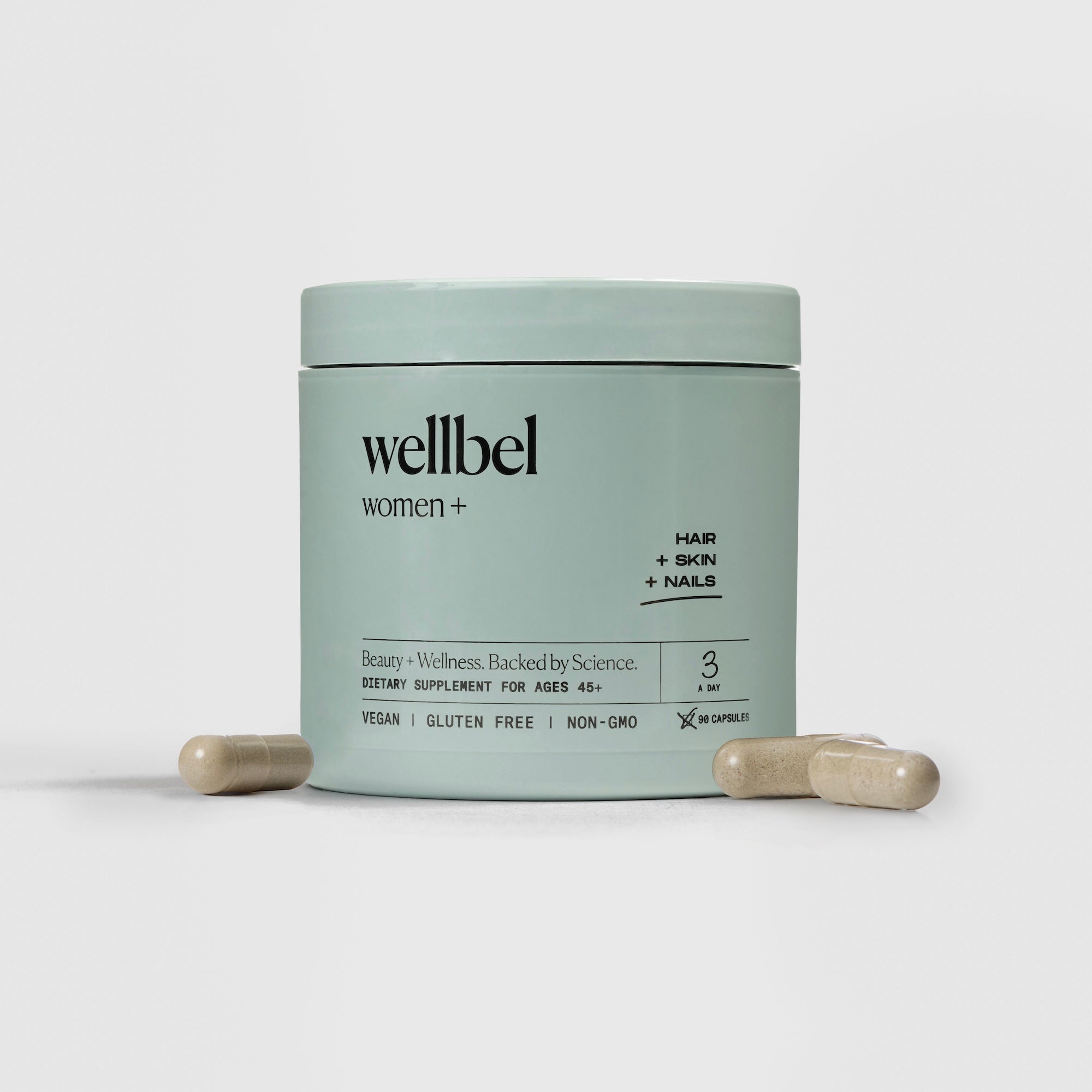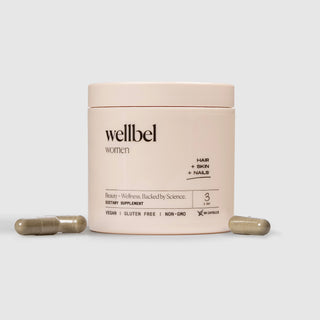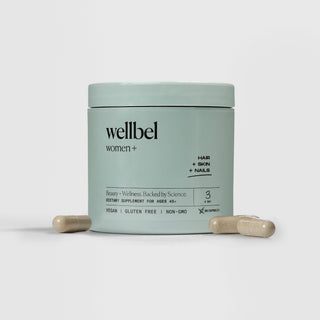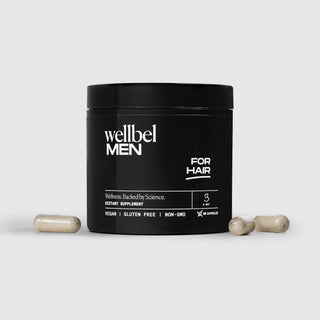If you’ve dealt with hair thinning and hair loss, then you’ve probably gone down just about every rabbit hole on the internet to kickstart hair growth. Hair loss can be frustrating! And the hair care world is filled with many so-called miracle cures and tutorials. So how can you know which ones actually work?
One option is to treat your hair like a testing ground. We’re not such big fans of that one. Another option is to trust the experts. That one we like.
It’s why we developed a physician-backed formula for overall hair health with Wellbel. Because science + experience = real results. With consistency and patience, you can eliminate the guesswork.
One ingredient often talked about when it comes to hair health is stinging nettle. Stinging nettle is an herb that’s been used medicinally for a long time, dating all the way back to medieval times. It’s also one of the hard-working ingredients in Wellbel Women, helping to support new hair growth and fight chronic hair loss.
In this post, we’ll break down the legit science around stinging nettle’s scalp health benefits, plus offer some tips for how you can incorporate stinging nettle into your life and your own hair health routine.
A Quick Refresher on Stinging Nettle
Before we get into its connection with hair regrowth, let’s quickly summarize what stinging nettle is and where it comes from.
Like all our ingredients, stinging nettle is plant-based. It’s an herb known as Urtica dioica and it’s native to northern Europe and parts of Asia, though today it’s grown all over the planet. Stinging nettle gets its name from its, well, stinging qualities. If you were to walk by a stem and brush your leg on it, or touch fresh nettle cuttings, you’d likely feel some itchiness and redness, thanks to the histamine and formic acid found in stinging nettle leaves.
So are we saying there’s an irritating leaf in our formula? Nope! When heated, dried, and reduced to stinging nettle extract, the nettle plant loses its stinging qualities. One of the reasons we love it is that it’s tolerated well by most people when ingested.
As an herb, stinging nettle oil has been used to treat high blood pressure and urinary tract infections, but its benefits extend beyond these conditions. You can read more about it here.
What’s the Connection Between Stinging Nettle and Hair?
Now let’s take a closer look at stinging nettle’s connections to hair health.
It Feeds Your Hair Follicles
Healthier hair starts from within. To operate at its best, a hair follicle needs nutrition and when it comes to nutrition, stinging nettle is a superfood. This plant is packed with all the nutrients that follicles need to stay healthy and strong, including vitamins A, C, D, and K, and important minerals like iron, magnesium, and potassium.
Plus, the vitamin C in stinging nettle is essential for collagen production, which is a key component of healthy hair — and has the nice side effect of supporting healthy skin as well.
It Can Increase Circulation
How do hair follicles receive nutrition from our diets? Blood circulation — and there’s even evidence that stinging nettle root extract can help with that.
In studies, stinging nettle leaf extract was shown to increase circulation. Increased blood flow to the scalp will help promote hair growth, supporting the hair growth cycle, and ensuring hair regrowth is fortified with sufficient vitamins and minerals.
It Protects Your Hair
Stinging nettle not only provides essential nutrients for healthy hair growth, but it also has extraordinary properties for protecting your hair. Its antioxidant properties help to neutralize free radicals, which can damage hair cells and lead to hair loss.
The plant also contains anti inflammatory properties that can help reduce inflammation on the scalp, which is often a contributor to hair loss. Last but not least, stinging nettle has antimicrobial properties, which means it can help fight off bacteria and fungi that may cause scalp infections or dandruff.
It’s Been Tied to DHT-Inhibition
So far, we’ve looked at how stinging nettle can help support regrowing hair, but there’s actually encouraging evidence that nettle root is an effective hair loss treatment.
Stinging nettle root is believed to be effective in fighting hair loss by inhibiting the production of DHT, a hormone that can contribute to both male pattern hair loss and female pattern hair loss (aka androgenetic alopecia). DHT can shrink hair follicles, causing them to produce thinner, weaker hairs until they eventually stop producing hair altogether.
Stinging nettle root extract can block the conversion of testosterone into DHT, which helps to keep hair follicles healthy and may prevent hair loss. While more research is needed to conclusively say stinging nettle herbal extract is the secret ingredient to fight hair loss, the existing evidence is encouraging.
Building Your Hair Care Routine
Hair health is like any other element of our physical and mental health. It’s reactive to environmental conditions, lifestyle choices like diet and hydration, and, thankfully, it can heal and repair itself, especially when we give it care and attention.
There are a number of ways to incorporate stinging nettle into your hair care routine, from an oil infusion to bringing in hair products that contain nettle extracts. We like to go beyond a topical treatment and ingest stinging nettle, along with a number of other nutrients that support hair growth.
For us, that means taking three Wellbel Women capsules a day, which help deliver stinging nettle’s numerous benefits to the scalp. As a powerful herbal remedy, stinging nettle is rich in essential nutrients that help to promote healthy hair growth, and it also has remarkable properties that can help protect the scalp and fight hair loss.
